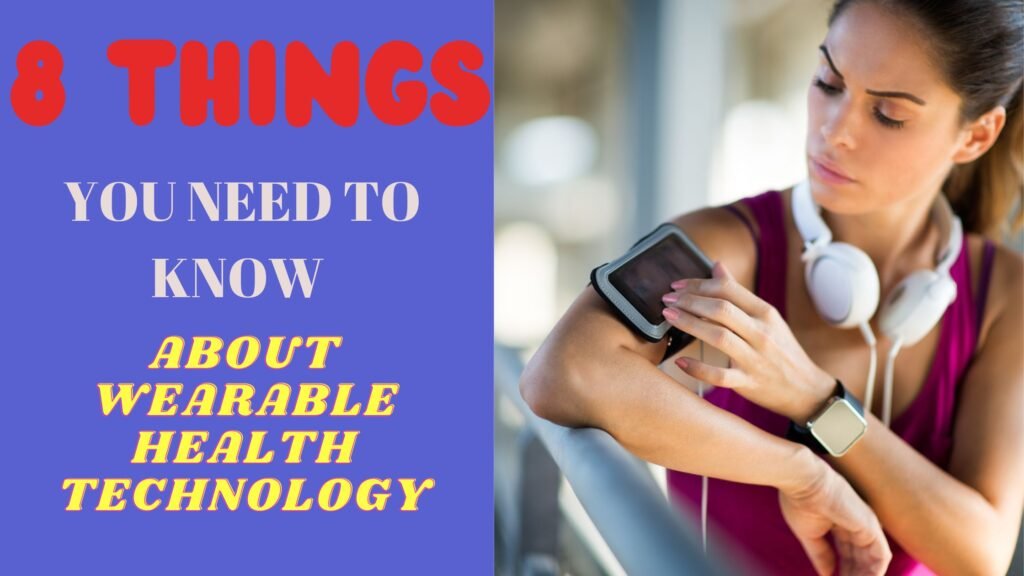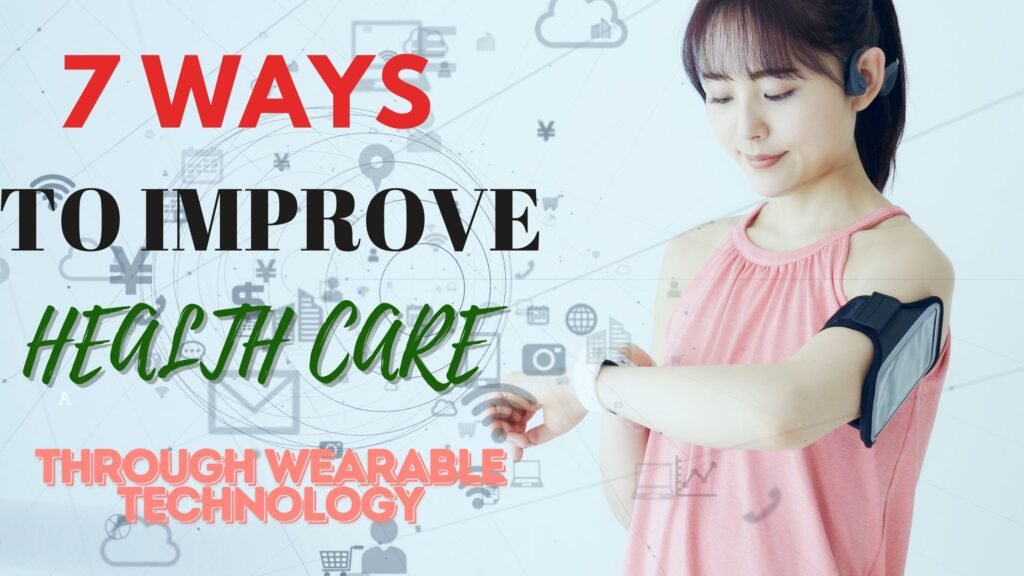Digital health refers to the convergence of digital technologies with healthcare to enhance the efficiency of healthcare delivery.
and also to make medicine more personalized and precise.
This innovative approach encompasses a wide range of applications, from wearable devices and mobile health apps to telemedicine and electronic health records.
As the healthcare industry continues to evolve, digital health is a vital component, driving significant changes in how to access, deliver, and manage it.
The integration of technology in healthcare aims to improve patient outcomes.
This it will do by enabling more accurate diagnoses, personalized treatment plans, and enhanced patient engagement.
Digital healthcare companies are at the forefront of this transformation.
They develop digital healthcare solutions that streamline processes, reduce healthcare costs, and elevate the overall quality of care.
These innovations not only benefit patients but also healthcare providers. Secondly, it also offers tools and data that support better decision-making and more efficient management of resources.
Impact of Digital health
One of the most significant impacts of digital health is its ability to empower patients. Through eHealthcare applications and platforms, individuals can monitor their health status, access medical information, and communicate with healthcare professionals remotely.
This shift towards a more proactive and participatory model of care is central to the concept of digital health and wellbeing.

This promotes a holistic approach to health management that extends beyond traditional clinical settings.
In addition to this, digital health innovations are also addressing broader public health challenges.
For instance, during the COVID-19 pandemic, digital health solutions such as telehealth consultations and contact tracing apps played a crucial role in mitigating the spread of the virus and ensuring continuity of care.
As these technologies continue to advance, their potential to transform healthcare delivery on a global scale becomes increasingly evident.
Why Digital Health is Crucial in Today’s Healthcare Landscape
The healthcare sector is undergoing a transformative shift with the integration of digital health technologies.
This change is driven by the growing demand for efficient and personalized healthcare services.
Traditional healthcare models often struggle to meet these demands.
This is leading to a rise in the adoption of digital healthcare solutions. These solutions facilitate better management of health data, streamline administrative tasks, and improve overall patient care.
One of the primary reasons for the increasing importance of digital health is the need for personalized medicine.
Digital health care companies and innovations
These companies are leveraging advanced technologies.
These include artificial intelligence (AI) and machine learning to analyze large datasets. This enables the development of tailored treatment plans.
This shift towards personalized healthcare not only enhances the efficacy of treatments but also improves patient outcomes and satisfaction.
Digital health innovations also play a pivotal role in enhancing patient engagement. Through e-healthcare platforms, patients can access their medical records, consult with healthcare providers remotely, and monitor their health metrics in real-time.
This level of engagement empowers patients to take an active role in managing their health, leading to better adherence to treatment plans and quicker recovery times.
Advantages:
Cost reduction is another critical advantage of using digital healthcare solutions.
By automating routine tasks and optimizing resource allocation, healthcare providers can significantly cut down on operational expenses.
Telemedicine, a key component of digital health and wellbeing, reduces the need for in-person visits, thus lowering transportation and related costs for both patients and providers.
Additionally, predictive analytics can help in early diagnosis and preventive care, reducing the long-term costs associated with chronic diseases.
In essence, digital health is not merely an accessory, but a necessity in today’s healthcare landscape.
It addresses the pressing need for more efficient, personalized, and cost-effective healthcare services.
As digital health and wellness technologies continue to evolve, their impact on the healthcare industry is set to grow, promising a future where healthcare is more accessible and equitable for all.
Different types of digital health technologies
Digital health technologies have transformed modern healthcare, offering innovative solutions that enhance both patient care and health outcomes.
Telemedicine, for example, has emerged as a critical tool for improving accessibility to medical services.
RELATED BLOG POST
Through virtual consultations, patients can receive medical advice and treatment without the need to travel.
which is particularly beneficial for those in remote or underserved areas. This not only saves time and resources but also ensures that healthcare is more evenly distributed across different demographics.
Wearable devices represent another significant advancement in digital healthcare.
These devices, which include fitness trackers, smartwatches, and other health monitoring gadgets, provide continuous, real-time data about a user’s health metrics. This capability is particularly advantageous for managing chronic conditions such as diabetes, hypertension, and cardiovascular diseases.
By constantly monitoring critical health parameters, wearable devices enable both patients and healthcare providers to make informed decisions quickly, potentially preventing serious health events before they occur.
The power of health apps
Health apps further enhance the scope of digital health by offering a wide range of functionalities.
Ranging from medication reminders to virtual health coaching.
These applications empower individuals to take a more proactive role in their health and wellness, promoting better lifestyle choices and adherence to treatment plans.
Moreover, the integration of artificial intelligence and machine learning in these apps can provide personalized recommendations based on an individual’s health data-
. Additionally, the aggregation of this data can contribute to broader public health insights, supporting research and policy-making aimed at enhancing overall health standards.
Digital health has become an integral part of modern healthcare, encompassing a wide array of technologies and methodologies aimed at improving patient care and healthcare delivery.
However, several alternative terminologies are frequently used interchangeably with digital health, each carrying its own nuances and specific contexts. Understanding these terms can provide a clearer picture of the digital healthcare landscape.
eHealth
eHealth, or electronic health, is a broad term that refers to the use of information and communication technologies (ICT) for health services and information.
It covers a wide range of applications, from electronic health records (EHRs) and telemedicine to online health information portals.
eHealth aims to enhance the quality of healthcare, improve access to services, and increase the efficiency of health systems.
It is particularly significant in enabling remote consultations and telehealth services, making healthcare more accessible to people in rural or underserved areas.
mHealth
mHealth, or mobile health, specifically focuses on the use of mobile devices such as smartphones and tablets in delivering healthcare solutions.
This includes mobile apps for health tracking, wearable devices monitoring vital signs, and SMS-based health interventions.
Health is particularly valuable in chronic disease management, health promotion, and patient engagement.
Its portability and accessibility make it a powerful tool in both developing countries and developed nations, where it can bridge gaps in healthcare delivery.
Health IT
Health Information Technology (Health IT) encompasses the vast array of technologies used to manage health information and support healthcare administration.
This includes EHRs, computerized physician order entry systems, and clinical decision support systems.
Health IT aims to improve the accuracy and reliability of patient data, streamline administrative processes, and enhance clinical workflows.
By leveraging Health IT, healthcare providers can make more informed decisions, reduce errors, and improve overall patient outcomes.
While each of these terms—eHealth, mHealth, and Health IT—has its own specific focus, they all contribute to the overarching goal of improving health and wellbeing.
Together, they represent the multifaceted nature of digital healthcare innovations, advancing the way healthcare is delivered and experienced in the modern world.
The Potential of Digital Technologies to Improve Health
Digital healthcare technologies are transforming the landscape of modern healthcare by providing innovative solutions that improve health outcomes.
One significant advancement is the use of remote patient monitoring systems.
These digital health devices enable continuous monitoring of patients’ vital signs, allowing for real-time data collection and intervention when necessary.
For instance, wearable devices can track heart rate, blood pressure, and glucose levels, offering valuable insights for managing chronic conditions such as diabetes and hypertension.
Artificial intelligence (AI) is another groundbreaking tool in digital healthcare.
AI algorithms can analyze vast amounts of data to assist in diagnostics, predicting disease progression, and personalizing treatment plans.
A notable example is IBM’s Watson Health, which uses AI to sift through medical literature and patient records to recommend treatment options. This not only speeds up the diagnostic process but also enhances accuracy, leading to better patient outcomes.
Blockchain technology is emerging as a robust solution for secure health data management.
By decentralizing data storage and ensuring transparency, blockchain significantly reduces the risk of data breaches and unauthorized access.
A case in point is the partnership between Guardtime and Estonia’s eHealth Authority, which uses blockchain to secure over one million patient records.
This ensures data integrity and fosters trust among patients and healthcare providers.
Digital healthcare solutions are also making strides in enhancing mental health and wellbeing.
Mobile applications and online platforms offer teletherapy sessions, mental health assessments, and mindfulness exercises, making mental health support more accessible.
For example, apps like Headspace and Talkspace provide users with tools to manage stress and access professional counseling from the comfort of their homes.
Overall, the integration of digital technologies in healthcare presents a promising avenue for improving health outcomes.
By leveraging remote patient monitoring, AI diagnostics, and secure health data management through blockchain, digital health innovations are paving the way for a more efficient and effective healthcare system.
Technologies Used in Healthcare
Blockchain technology is gaining traction in digital healthcare for its potential to enhance data security and transparency.
By creating immutable and decentralized records, blockchain ensures the integrity of patient data, fostering trust and compliance with regulatory standards.
It also facilitates secure transactions and data exchange between different healthcare entities.
Lastly, big data analytics plays a critical role in modern healthcare by leveraging large datasets to uncover trends, optimize operations, and improve patient outcomes. Through predictive analytics, healthcare institutions can anticipate disease outbreaks, personalize patient care, and make evidence-based policy decisions.
Collectively, these technologies are driving the evolution of digital health, enabling more efficient, effective, and equitable healthcare services.
As digital healthcare companies continue to innovate, the integration of these technologies promises to enhance both health and wellness on a global scale.
Health Issues Associated with Digital Devices
In the current era of e-healthcare and digital healthcare solutions, the widespread use of digital devices has brought significant advancements.
However, it has also introduced various health concerns that need addressing.
One of the primary issues is digital eye strain, often referred to as computer vision syndrome.
This condition results from prolonged screen time, causing symptoms like dry eyes, blurred vision, and headaches.
The high-energy visible (HEV) light emitted by screens can contribute to these discomforts.
It is therefore crucial for individuals to take regular breaks and follow the 20-20-20 rule: every 20 minutes, look at an object 20 feet away for at least 20 seconds.
Another concern is sleep disturbances, which are increasingly linked to the use of digital devices before bedtime.
The blue light emitted by screens can suppress melatonin production, a hormone responsible for regulating sleep cycles.
This disruption can lead to difficulties in falling asleep and poor sleep quality. To mitigate this issue, experts recommend reducing screen time at least an hour before bed and using blue light filters on devices during evening hours.
The psychological impact of Digital health technology
Beyond physical health, the psychological impact of constant connectivity cannot be overlooked.
The pressure to stay connected and the continuous influx of information can lead to stress, anxiety, and feelings of inadequacy.
Social media platforms, in particular, can create a sense of comparison and competition, exacerbating mental health issues.
Digital health and wellbeing initiatives emphasize the importance of setting boundaries, such as designating tech-free zones and times, to foster a healthier relationship with digital devices.
Employing ergonomically designed workspaces can also alleviate some of the physical strain associated with prolonged device use.
Regular physical activity and mindfulness practices can help counteract the sedentary lifestyle often linked with heavy digital device usage.
Digital healthcare companies are increasingly developing tools and applications aimed at promoting healthier digital habits, underscoring the importance of balanced digital health and wellness in modern life.
Conclusion
In conclusion, digital health is not just a trend but a fundamental shift in the healthcare landscape, bringing forth new possibilities for enhancing patient care and optimizing healthcare systems.
Thank you for reading to the end.Do you wear any kind of digital health device? Or do you know any kind of digital health technology I have not mentioned?
Please drop your comments below.Dont forget to follow me on pinterest for more digital health tips







